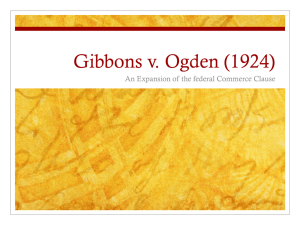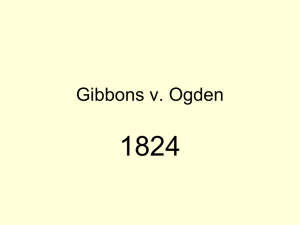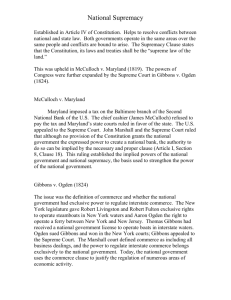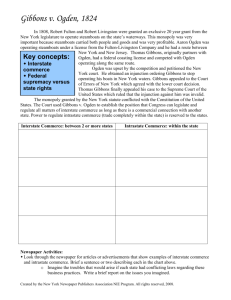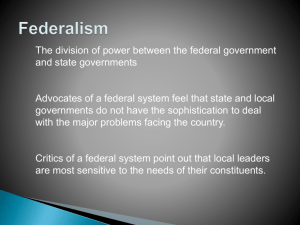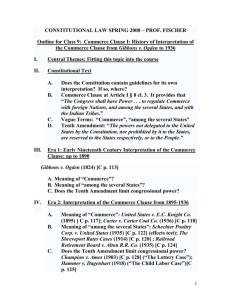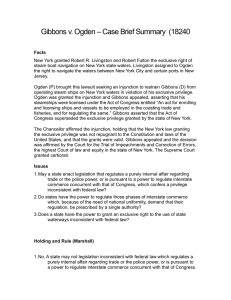Gibbons v. Ogden - Doral Academy Preparatory
advertisement
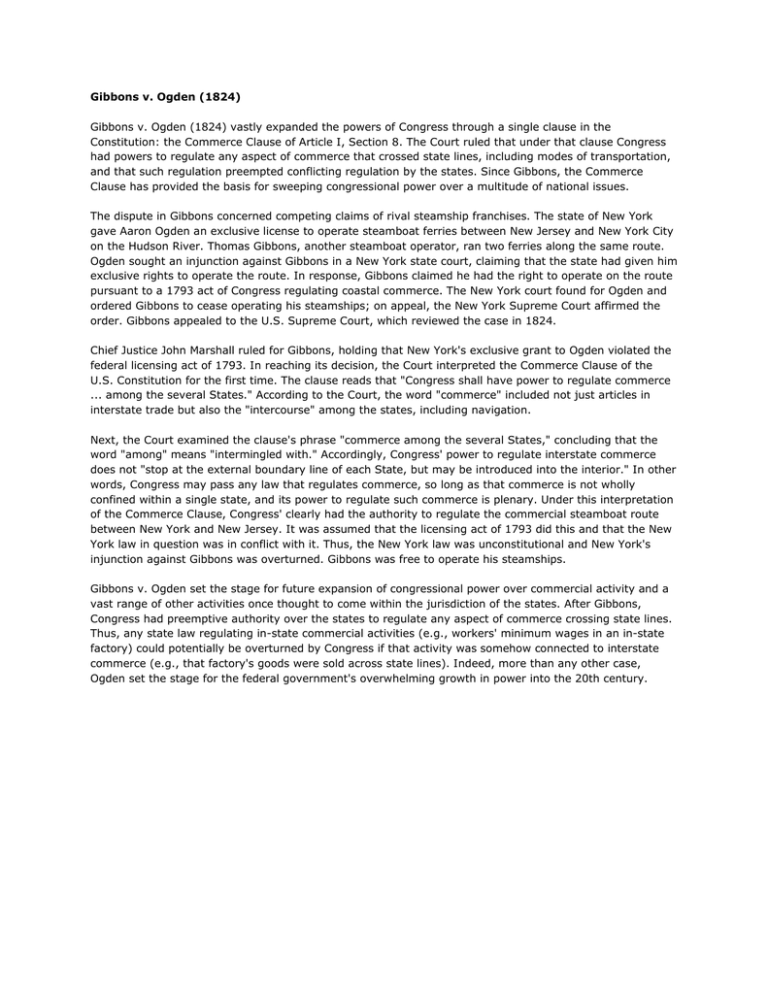
Gibbons v. Ogden (1824) Gibbons v. Ogden (1824) vastly expanded the powers of Congress through a single clause in the Constitution: the Commerce Clause of Article I, Section 8. The Court ruled that under that clause Congress had powers to regulate any aspect of commerce that crossed state lines, including modes of transportation, and that such regulation preempted conflicting regulation by the states. Since Gibbons, the Commerce Clause has provided the basis for sweeping congressional power over a multitude of national issues. The dispute in Gibbons concerned competing claims of rival steamship franchises. The state of New York gave Aaron Ogden an exclusive license to operate steamboat ferries between New Jersey and New York City on the Hudson River. Thomas Gibbons, another steamboat operator, ran two ferries along the same route. Ogden sought an injunction against Gibbons in a New York state court, claiming that the state had given him exclusive rights to operate the route. In response, Gibbons claimed he had the right to operate on the route pursuant to a 1793 act of Congress regulating coastal commerce. The New York court found for Ogden and ordered Gibbons to cease operating his steamships; on appeal, the New York Supreme Court affirmed the order. Gibbons appealed to the U.S. Supreme Court, which reviewed the case in 1824. Chief Justice John Marshall ruled for Gibbons, holding that New York's exclusive grant to Ogden violated the federal licensing act of 1793. In reaching its decision, the Court interpreted the Commerce Clause of the U.S. Constitution for the first time. The clause reads that "Congress shall have power to regulate commerce ... among the several States." According to the Court, the word "commerce" included not just articles in interstate trade but also the "intercourse" among the states, including navigation. Next, the Court examined the clause's phrase "commerce among the several States," concluding that the word "among" means "intermingled with." Accordingly, Congress' power to regulate interstate commerce does not "stop at the external boundary line of each State, but may be introduced into the interior." In other words, Congress may pass any law that regulates commerce, so long as that commerce is not wholly confined within a single state, and its power to regulate such commerce is plenary. Under this interpretation of the Commerce Clause, Congress' clearly had the authority to regulate the commercial steamboat route between New York and New Jersey. It was assumed that the licensing act of 1793 did this and that the New York law in question was in conflict with it. Thus, the New York law was unconstitutional and New York's injunction against Gibbons was overturned. Gibbons was free to operate his steamships. Gibbons v. Ogden set the stage for future expansion of congressional power over commercial activity and a vast range of other activities once thought to come within the jurisdiction of the states. After Gibbons, Congress had preemptive authority over the states to regulate any aspect of commerce crossing state lines. Thus, any state law regulating in-state commercial activities (e.g., workers' minimum wages in an in-state factory) could potentially be overturned by Congress if that activity was somehow connected to interstate commerce (e.g., that factory's goods were sold across state lines). Indeed, more than any other case, Ogden set the stage for the federal government's overwhelming growth in power into the 20th century.
